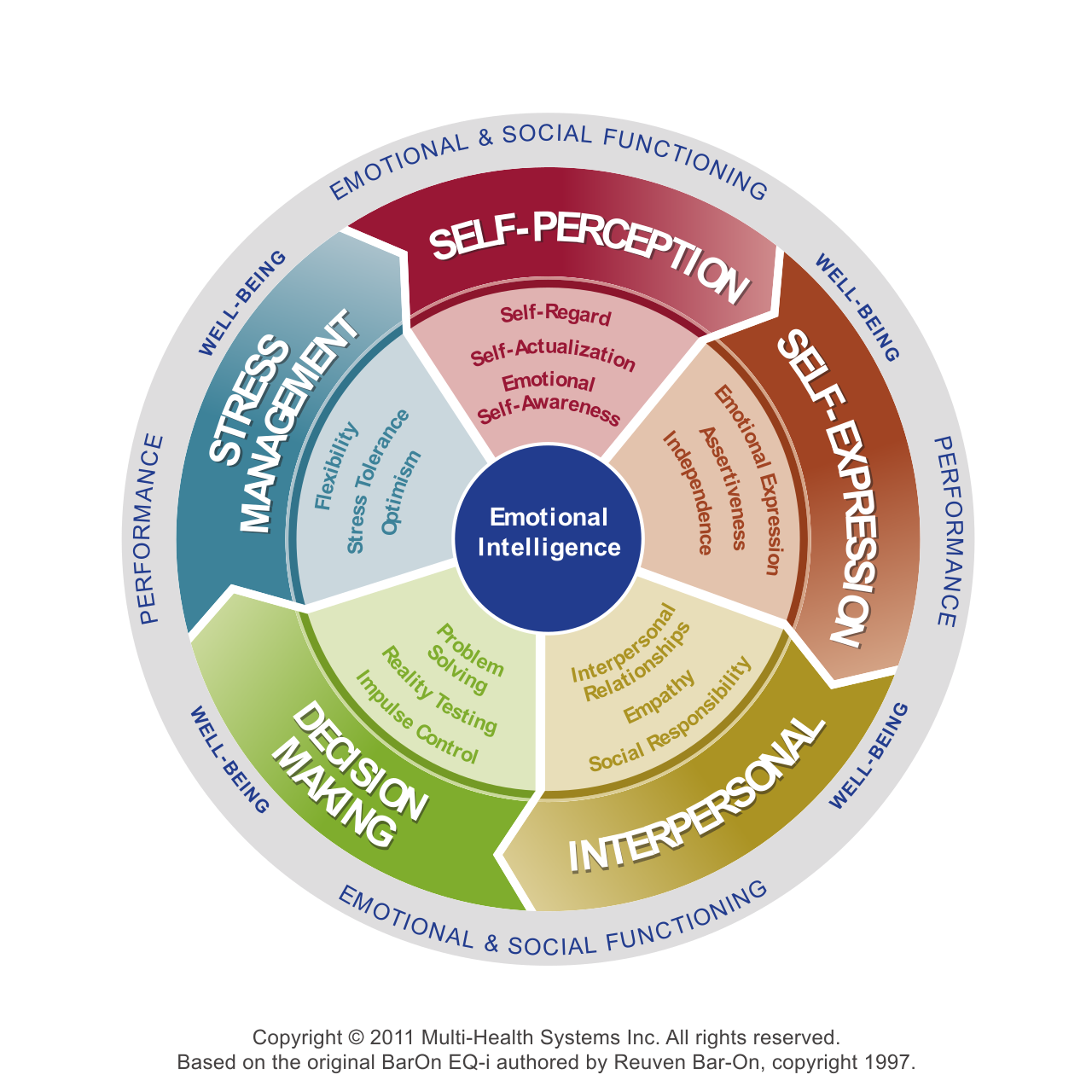EMOTIONAL INTELLIGENCE
written by Ade Lingard - first published on 7th September 2020
In developing the Data and Analytical Talent Development Programme alongside my other development programmes (aimed at leadership, finance and commercial specialists) I decided to include an optional reliable and valid assessment of Emotional Intelligence (EI). I’ve been working with EI a lot during 2020 including studying it, working with my coachees on it and testing and developing my own. It’s 25 years now since Daniel Goleman’s book Emotional Intelligence: Why it can matter more than IQ was released. Since then many more books and studies have been released including ground breaking work by Goleman himself who is still a leader in this field. My own studies on Goleman’s work have led to understanding the components that make up a great leader, exploring different leadership styles and how the best leaders deploy different styles in different situations as well as a brief wander into the biology of leadership.
My own fascination in this topic led me to further analyse the role EI has to play in the workplace. Before I write about that, just a brief word on IQ – it’s hugely important, as are technical skills, especially in data and analytics. EI (or EQ) is not the only game in town. EI and personality are not the same thing, personality is much more fixed than EI. With awareness and consideration of our EI we can develop it in a relatively short timescale (several months rather than years). I had my own EI assessed and tested via EQ-i 2.0 in March. EQ-i 2.0 is a world leading emotional intelligence assessment (you can see a picture of the model at the head of this blog). I worked through my report with the assistance of a great coach who helped me navigate what I wanted to work on and highlighted the key components of EI that are important in my chosen career path. I created a development plan for a couple of areas, worked on those areas and then took the assessment again in August. My own EI had not only improved in the areas I had focused on for development, it had improved in other areas I had become aware of as part of the assessment but not specifically worked on. I totally appreciate I am a sample of one (and therefore far from statistically significant!) however I notice the difference as well as being able to see it in a report. Once we are conscious of something we can improve it, sometimes even without conscious effort.
In the last 25 years many studies on EI have taken place and link EI to success in the workplace. This makes total sense to me, it feels right, as the EI skills are what make us able to perceive and express ourselves, develop and maintain relationships, cope with challenges, and use emotional information in an effective and meaningful way. These skills are vital in the workplace as well as in society generally. It therefore makes sense to focus on developing them, but who does? In data and analytics we often search for those with high IQ, mathematical ability and great technical skills. We develop our technical skills further and we do of course need to. I believe though that we have huge untapped potential in ourselves in the area of EI, hence my work in this area and including it in my development programmes. I can hold a conversation around a person’s EI in a coaching session based on key identified components and how they feel about it. However assessing it via EQ-i 2.0 introduces a new opportunity. I myself am a mind-identified, logical, left brained ‘I think’ rather than ‘I feel’ individual like many analytical people and we like and value logical and statistically valid methodologies. EQ-i 2.0 delivers this, it’s a rational start to EI development. It helps us put a lens to the so called softer skills which are often the hardest to develop, we spend little time on them compared to other development, yet they have a strong correlation with success. It is for this very reason that I have included EI assessment via EQ-i 2.0 as part of my Data and Analytical Talent Development Programme launched today. Through these programmes I look forward to helping individuals develop their skills beyond technical knowledge and seeing the positive impact they have on their organisations.
To learn more by all means give me a shout and thanks for reading…
Ade is a certified assessor of Emotional Intelligence using EQ-i 2.0 and EQ 360, a leading reliable and valid assessment from Multi-Health Systems.

